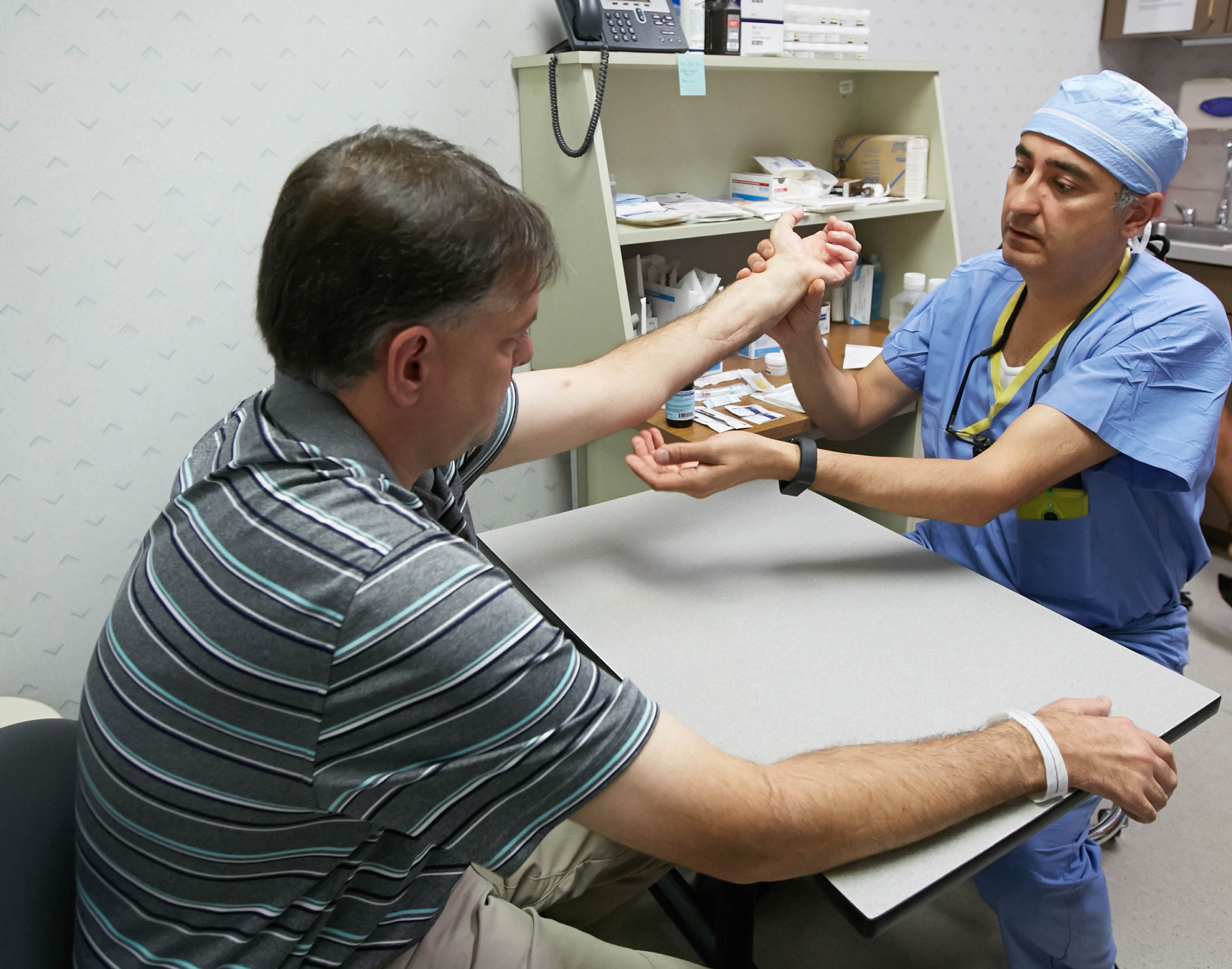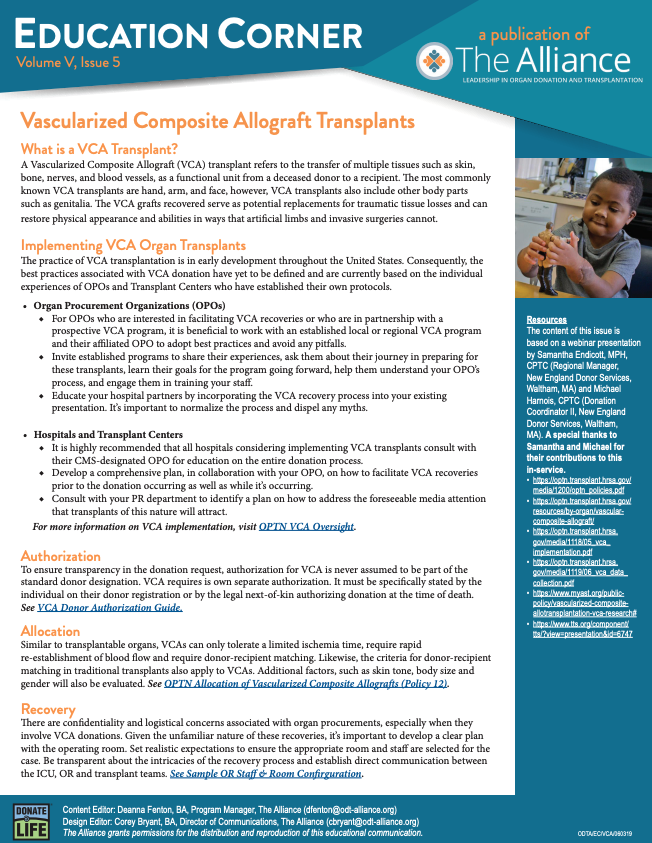A Vascularized Composite Allograft (VCA) transplant refers to the transfer of multiple tissues such as skin, bone, nerves, and blood vessels, as a functional unit from a deceased donor to a recipient. The most commonly known VCA transplants are hand, arm, and face, however, VCA transplants also include other body parts such as genitalia. The VCA grafts recovered serve as potential replacements for traumatic tissue losses and can restore physical appearance and abilities in ways that artificial limbs and invasive surgeries cannot.
Implementing VCA Organ Transplants
The practice of VCA transplantation is in early development throughout the United States. Consequently, the best practices associated with VCA donation have yet to be defined and are currently based on the individual experiences of OPOs and Transplant Centers who have established their own protocols.
Organ Procurement Organizations (OPOs)
- For OPOs who are interested in facilitating VCA recoveries or who are in partnership with a prospective VCA program, it is beneficial to work with an established local or regional VCA program and their affiliated OPO to adopt best practices and avoid any pitfalls.
- Invite established programs to share their experiences, ask them about their journey in preparing for these transplants, learn their goals for the program going forward, help them understand your OPO’s process, and engage them in training your staff.
- Educate your hospital partners by incorporating the VCA recovery process into your existing presentation.
Hospitals and Transplant Centers
- It is highly recommended that all hospitals considering implementing VCA transplants consult with their CMS-designated OPO for education on the entire donation process.
- Develop a comprehensive plan, in collaboration with your OPO, on how to facilitate VCA recoveries prior to the donation occurring as well as while it’s occurring.
- Consult with your PR department to identify a plan on how to address the foreseeable media attention that transplants of this nature will attract.
- For more information on VCA implementation, visit OPTN VCA Oversight.
Authorization
To ensure transparency in the donation request, authorization for VCA is never assumed to be part of the standard donor designation. VCA requires is own separate authorization. It must be specifically stated by the individual on their donor registration or by the legal next-of-kin authorizing donation at the time of death. See VCA Donor Authorization Guide.
Allocation
Similar to transplantable organs, VCAs can only tolerate a limited ischemia time, require rapid re-establishment of blood flow and require donor-recipient matching. Likewise, the criteria for donor-recipient matching in traditional transplants also apply to VCAs. Additional factors, such as skin tone, body size and gender will also be evaluated. See OPTN Allocation of Vascularized Composite Allografts (Policy 12).
Recovery
There are confidentiality and logistical concerns associated with organ procurements, especially when they involve VCA donations. Given the unfamiliar nature of these recoveries, it’s important to develop a clear plan with the operating room. Set realistic expectations to ensure the appropriate room and staff are selected for the case. Be transparent about the intricacies of the recovery process and establish direct communication between the ICU, OR and transplant teams. See VCA OR Recovery
The content of this issue is based on a webinar presentation by Samantha Endicott, MPH, CPTC (Regional Manager, New England Donor Services, Waltham, MA) and Michael Harnois, CPTC (Donation Coordinator II, New England Donor Services, Waltham, MA). A special thanks to Samantha and Michael for their contributions to this in-service.







